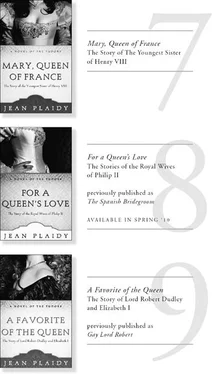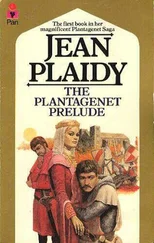Jean Plaidy - The Murder in the Tower - The Story of Frances, Countess of Essex
Здесь есть возможность читать онлайн «Jean Plaidy - The Murder in the Tower - The Story of Frances, Countess of Essex» весь текст электронной книги совершенно бесплатно (целиком полную версию без сокращений). В некоторых случаях можно слушать аудио, скачать через торрент в формате fb2 и присутствует краткое содержание. Жанр: Старинная литература, на русском языке. Описание произведения, (предисловие) а так же отзывы посетителей доступны на портале библиотеки ЛибКат.
- Название:The Murder in the Tower: The Story of Frances, Countess of Essex
- Автор:
- Жанр:
- Год:неизвестен
- ISBN:нет данных
- Рейтинг книги:3 / 5. Голосов: 1
-
Избранное:Добавить в избранное
- Отзывы:
-
Ваша оценка:
- 60
- 1
- 2
- 3
- 4
- 5
The Murder in the Tower: The Story of Frances, Countess of Essex: краткое содержание, описание и аннотация
Предлагаем к чтению аннотацию, описание, краткое содержание или предисловие (зависит от того, что написал сам автор книги «The Murder in the Tower: The Story of Frances, Countess of Essex»). Если вы не нашли необходимую информацию о книге — напишите в комментариях, мы постараемся отыскать её.
The Murder in the Tower: The Story of Frances, Countess of Essex — читать онлайн бесплатно полную книгу (весь текст) целиком
Ниже представлен текст книги, разбитый по страницам. Система сохранения места последней прочитанной страницы, позволяет с удобством читать онлайн бесплатно книгу «The Murder in the Tower: The Story of Frances, Countess of Essex», без необходимости каждый раз заново искать на чём Вы остановились. Поставьте закладку, и сможете в любой момент перейти на страницу, на которой закончили чтение.
Интервал:
Закладка:
“Then Your Majesty does not wish to benefit from the Spanish gold?”
“I wouldna say that, Robbie. There’s no harm in your doing a little negotiation with Gondomar. Sound the man. See what they’ll offer. Whether we decide there should be a French or Spanish marriage ‘tis as well to know all that’s entailed. And Robbie, we’ve been long enough without a Secretary of State. I’ve decided on Winwood.”
Robert was astonished. Winwood was not the man Northampton had chosen, and therefore Robert had supported. Northampton had thought Sir Thomas Lake would be the man for the job because he was what the old Earl called a Howard man. Robert wondered what Northampton would say when he heard that the King’s choice had fallen on Winwood.
Had he chosen Winwood because, as a staunch Protestant and Puritan, he was fiercely against the Spanish marriage?
James waited for Robert to express his disappointment at the choice; but Robert did no such thing. Winwood was the King’s choice and although the man would not have been his, as soon as James mentioned it, it became acceptable to him.
How I love this man! thought James. Never shall any other come between our friendship; always the first place in my heart will be for Robert Carr.

Sir Ralph Winwood was overjoyed when he heard of his appointment. It was what he had wanted for a long time. Now he would be in a position to use his voice against all idolaters; and this was particularly important because he knew Northampton was working for the Spanish marriage and had persuaded Somerset to do the same.
In Sir Ralph Winwood’s opinion it was his duty therefore to work against the favorite.
He knew that the Queen was a secret Catholic, and this shocked him deeply. It was time a good Protestant had some control of affairs.
He deplored the King’s preoccupation with handsome young men. How much better a ruler he would be if he surrounded himself with serious men—men of experience rather than beauty.
Still, it might be that Somerset would not always hold his present position; and the fact that Sir Ralph Winwood had become Secretary of State was a step in the right direction.

Within the Court there was growing friction. The proposed Spanish marriage of the heir to the throne must necessarily be a cause of contention; and now that Somerset was joined by marriage to the Howards, theirs was by far the most powerful party in the country. Northampton, at its head, was a secret Catholic; as for the King, he had known that Northampton took bribes from Spain and yet had done nothing to deprive him of his power. The rulers of England seemed to be Somerset, Northampton and Somerset’s father-in-law, the Earl of Suffolk.
The fact that the Queen had become a Catholic made further confusion, for she had always felt a deep resentment toward Somerset and often referred to the death of her son Henry and the suspicions which had been rife at the time concerning Somerset and Overbury.
Somerset’s and Howard’s party; the Queen’s party; the Protestants such as Sir Ralph Winwood; those in favor of a Spanish match for Prince Charles; those in favor of a French one; they were all warring together; and this dissension resulted in insults which led to duels.
James was distracted and turned more and more to Robert for solace; never had Robert been so powerful and never had so many longed to see him fall.
It was at this time that the King and certain members of the Court made a journey to Cambridge; and because the Earl of Suffolk was the Chancellor of the University there, the arrangements for the entertainment of the royal party were left in his hands. It was an indication of how bold the Howards had become that Suffolk declined to invite the Queen.
Anne was angry, apart from the fact that she loved pageantry of any kind, for she saw in this an insult; and as usual she blamed Robert Carr, although he had had no hand in it.
“Let him wait,” she said. “I will have my revenge for this.”
There were, in fact, very few ladies present in Cambridge during the King’s stay there, apart from those belonging to the Howard family.
Frances was a member of the party, and as she rode out from London her spirits were lifted; she was putting a distance between herself and such places as Lambeth and Hammersmith; Robert was beside her, the devoted husband, who was always solicitous for her health and comfort; she was determined to be gay and enjoy that position for which she had so long fought.
Her father, Suffolk, being the host, was lodged in St. John’s College, but Lady Suffolk, with Frances and other female members of the family, were to stay at Magdalen, while James and Charles—with Robert—were at Trinity.
The men of the University were determined to provide entertainments for the royal party; the whole town was en fête , eager to do homage to the visitors, and banquets were given in St. John’s College and Trinity; but because this was a University town, there was an endeavor to keep the entertainment on an intellectual level.
One day the company assembled to see a play called Ignoramus which was being presented for the pleasure of the King and his friends.
In the play was a youth so handsome, so full of vitality that whenever he was present he attracted the attention of everyone. It was rare that anyone possessed such good looks; there was only one other man at the Court who was so outstandingly handsome; and that was Robert Carr.
The King leaned forward in his chair and watched the play with more interest than it deserved. Or was it the play he watched?
He turned to one of his gentlemen and said: “Tell me, what is the name of yon lad?”
It was impossible to answer the question for the youth was so obscure that his name was not widely known.
“Find out and tell me,” commanded James.
The gentleman of whom he had asked the question hurried off and a few minutes later returned.
“His name is George Villiers, Your Majesty.”
“George Villiers,” repeated James, slowly as though he wished to memorize it.
Many people noted the incident, some with apprehension, others with glee.
Could it mean anything? Could it be made to mean anything?
Perhaps not, for the King did not ask that George Villiers be brought to him; and when he left the Clare Hall, where the piece had been played, he leaned very affectionately on the arm of Robert Carr.

On returning from Cambridge, Lord Pembroke, who had noticed the King’s passing interest in young George Villiers, went to see the Queen.
Anne had always been friendly with Pembroke and when he asked for an audience, it was readily granted.
Pembroke found her playing with her frisky miniature greyhounds, which she held by a crimson cord; the ornamental collars about their necks, embossed in gold with the letters A.R., branded them as royal dogs.
“Ah, my lord,” she said. “I trust I see you well. You are recently come from the Cambridge revels, I believe.”
She pouted with annoyance; she had not been invited to the revels. Rarely had a Queen of the realm been so insulted. But what could one expect when the King gave his attention to handsome young men; and the worst of them all was Robert Carr, who she would always believe had had a hand in the death of her darling son.
Читать дальшеИнтервал:
Закладка:
Похожие книги на «The Murder in the Tower: The Story of Frances, Countess of Essex»
Представляем Вашему вниманию похожие книги на «The Murder in the Tower: The Story of Frances, Countess of Essex» списком для выбора. Мы отобрали схожую по названию и смыслу литературу в надежде предоставить читателям больше вариантов отыскать новые, интересные, ещё непрочитанные произведения.
Обсуждение, отзывы о книге «The Murder in the Tower: The Story of Frances, Countess of Essex» и просто собственные мнения читателей. Оставьте ваши комментарии, напишите, что Вы думаете о произведении, его смысле или главных героях. Укажите что конкретно понравилось, а что нет, и почему Вы так считаете.











